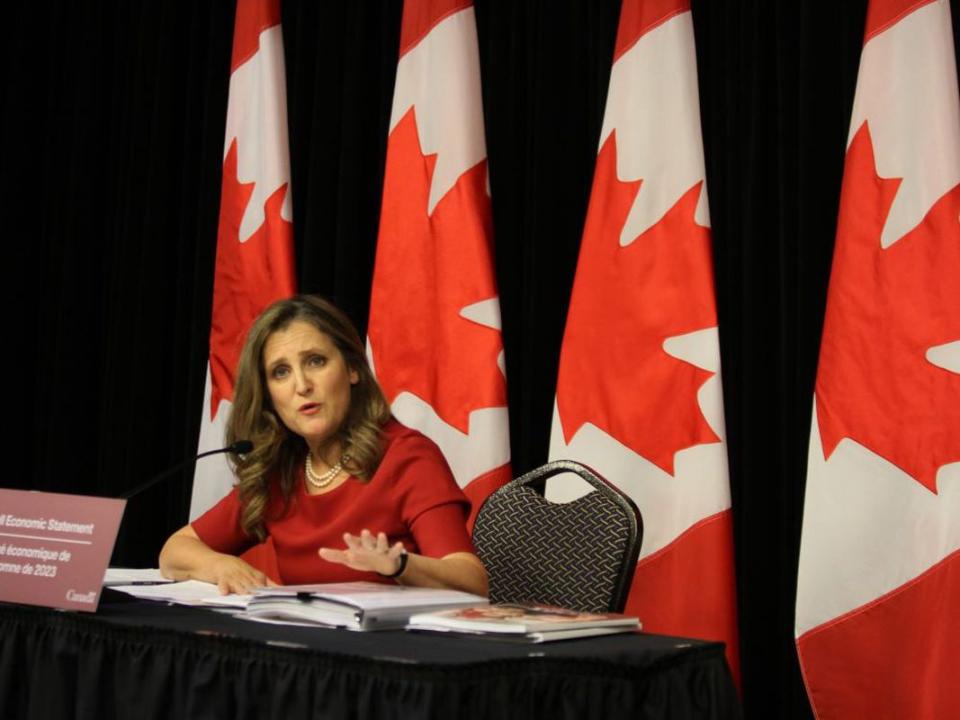Opinion: Ottawa’s debt interest has nearly doubled in just 2 years

By Jake Fuss and Grady Munro
For years, until the latter stages of the pandemic, governments across Canada benefited from historically low interest rates that made it relatively inexpensive to borrow money. Many governments chose to increase their spending and run deficits, seeming to assume interest rates would stay low forever. But then in 2022 reality bit.
As inflation reached its highest point since the 1980s, the Bank of Canada raised its policy interest rate from 0.25 per cent to 5.00 per cent in just 15 months. This substantial hike made it more expensive to borrow money, not only for consumers and businesses but for governments, too.
As we show in a new Fraser Institute study, since taking office, the Trudeau government has run uninterrupted budget deficits and accumulated nearly $1 trillion in total debt. When interest rates were still historically low in 2021, Finance Minister Chrystia Freeland claimed “it would be shortsighted” not to make “investments” and borrow money to pay for new spending. What was really shortsighted, it turns out, was not seeing that interest rates would spike starting just a year later.
Since fiscal year 2021-22 federal debt interest has nearly doubled — from $24.5 billion to $46.5 billion. In the fiscal year now coming to a close Ottawa will have spent almost as much on debt interest as on the Canada Health Transfer ($49.4 billion), which goes to the provinces to help fund health-care services. It will have spent half again as much on interest as on the Canada Child Benefit and national daycare combined ($31.2 billion).
It’s a similar story in the provinces. Debt interest costs have grown markedly since 2020, albeit less than they have in Ottawa. This fiscal year the B.C. government is paying more in debt interest ($3.3 billion) than it collects from its provincial carbon tax. Ontario will spend more on interest ($13.4 billion) than on post-secondary education. And Quebec’s interest costs ($9.9 billion) currently exceed everything it gets via the Canada Health Transfer.
Needless to say, Canadian families bear the burden of these interest costs. The general revenues that governments use to pay interest on their debts ultimately come from taxpayers. Higher interest costs mean higher taxes and less spending on health care, education, social services — you name it.
The scale of indebtedness varies depending on where you live, but in the fiscal year coming to a close the combination of federal and provincial debt interest will cost Canadians anywhere from $1,764 per person in B.C. to $3,225 per person in Newfoundland and Labrador.
Governments across the country have developed a bad habit of dining out on borrowed money. Only by returning to balanced budgets and paying down debt can they begin to stem the growth in debt interest costs. Unfortunately, only New Brunswick and Alberta plan to run balanced budgets this year even though balance would be well within reach for the other eight provinces.
The recent rise in interest rates may be near its end, but Canadians will continue to pay the price for their governments’ shortsighted decisions to borrow money incessantly.
Jake Fuss and Grady Munro are fiscal policy analysts at the Fraser Institute.
Bookmark our website and support our journalism: Don’t miss the business news you need to know — add financialpost.com to your bookmarks and sign up for our newsletters here.

 Yahoo Finance
Yahoo Finance 